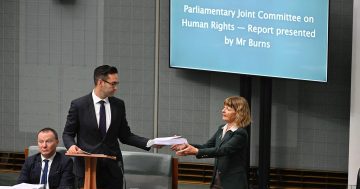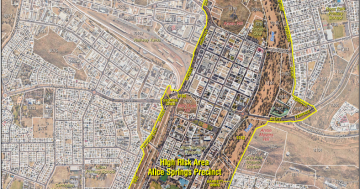 The Australian Human Rights Commission (AHRC) has called for greater accountability in laws extending the Commonwealth’s power in the event of national emergencies.
The Australian Human Rights Commission (AHRC) has called for greater accountability in laws extending the Commonwealth’s power in the event of national emergencies.
In its submission to the Senate Legal and Constitutional Affairs Legislation Committee inquiry, examining the National Emergency Declaration Act 2020, the Commission recommended five changes to the legislation enacted by Parliament last year.
Human Rights Commissioner Edward Santow said the laws, which empower the Federal Government to act quickly and unilaterally during national emergencies, must include appropriate checks and balances.
“The COVID-19 pandemic has opened the door to a creeping authoritarianism in some other countries,” Commissioner Santow said.
“We must ensure our own Government is accountable in using special powers during a national emergency,” he said.
“Emergency powers can limit human rights, such as freedom of movement, in order to address an immediate health or other crisis.”
Commissioner Santow said there needed to be effective scrutiny when Government and Ministers used emergency powers.
“Any emergency restriction on human rights should remain in place for the minimum time necessary to address the crisis,” he said.
He said the Act aimed to clarify and consolidate the Commonwealth’s emergency powers and establish a framework by which the Governor-General, on the advice of the Prime Minister, could declare a national emergency and trigger the Commonwealth’s ability to exercise emergency powers.
Commissioner Santow said the AHRC’s proposed changes to the Act included limits on the number of times a national emergency declaration could be extended; immediate review if it’s extended more than once; defining the terms ‘emergency’ and ‘Commonwealth interests’; Ministerial power to dispense with administrative requirements be conditional on Parliament not being able to sit within a suitable period of time and proportionate to need; a special parliamentary committee to be formed when an emergency is declared; and removing the ability for Ministers to make ‘non-disallowable instruments’.
The AHRC’s 21-page submission to the Senate inquiry can be downloaded on its website at this PS News link.











